Phonetics laboratory courses (P3)


Period
All

Duration
Monthly

Required levels
A1 to C1

VISA
Non
Home » French courses » Modules » Phonetics laboratory courses (P3)
What is the learning of phonetics at the CCFS?
The Cours de Civilisation Française de la Sorbonne (CCFS) is one of the few institutions to offer phonetics courses at all learning levels, with courses adapted to the class group as a whole.
These French phonetics courses in the laboratory are a major asset for students in mastering French. More confident in their comprehension and expression skills, students are better able to interact orally in French.
Program Information:
Phonetics courses are offered in various formats.
They are an integral part of most courses offered at the CCFS but can also be taken as a separate module (P3 module of 30 hours over 6 weeks).
Module Details
The P3 module includes 30 hours of classes over 6 weeks.
The phonetics courses are divided into two distinct parts:
- the first, rather theoretical, during which the teacher explains a phonetic phenomenon (opposition of phonemes, chaining mechanisms, dropping of the /ǝ/, accentuation, prosodic phenomena, etc.) by presenting exercises that are worked on in groups;
- the second, truly practical, takes place in the language laboratory. Each student records the exercises worked on together: they then have the opportunity to listen again to the models, to listen to themselves in order to become aware of their own difficulties and to work on them more specifically. During this time in the language laboratory, the teacher listens to each student individually and provides each with tips and advice to improve their oral production.
Why study phonetics in a language class?
Learning phonetics involves becoming aware of all the phonemes of a language, but also and above all to grasp its prosody, its music.
French is a language where the difference between written and spoken is very clear; learning phonetics helps explain the transcription of the French language and opens students’ ears to this new language. By explaining the characteristics of spoken language, we first promote comprehension, then, secondly, the intelligibility and quality of the student’s pronunciation.
Target Audience and Expected Objectives
This module is aimed at adult learners who wish, for example, to:
Improve oral comprehension and production in an academic or professional context.
- Improve pronunciation to gain fluency and credibility.
- Reduce phonetic interference related to their mother tongue.
- Prepare for exams such as the DELF B2, the DALF C1 or admission/employment interviews.
Prerequisites
The student must be at least 18 years old.
Registration Procedures
- Admission to the course is only final when payment is complete (at least one month before the start of the course) and after validation of the registration file.
- A certificate of registration is issued after payment of a deposit and presentation of administrative documents (copy of identity document, translation of secondary school leaving certificate, identity photo).
- A mandatory online placement test assigns a level to students before the start of the course. A supplementary test may be requested from the student in certain specific cases.
- Registration is done online on this site.
- Annual registration fees of 75 euros apply upon registration.
Detailed information on registration procedures can be found here.






